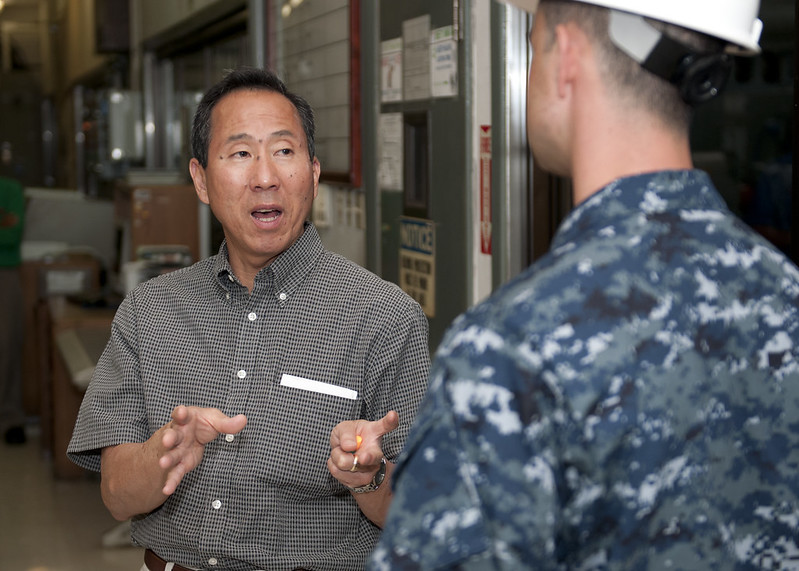The Unspoken Story Of The Chagossians
 The Chagos Archipelago, a cluster of more than 60 islands with seven main atolls, holds deep historical, ecological and geopolitical significance. At its heart lies Diego Garcia, the largest and most pivotal island. In the 1960s, the British forcibly removed the Chagossians, mainly from Diego Garcia, to establish a United States (U.S.) – United Kingdom (U.K.) military base. This act caused decades of economic hardship, social injustice and the silencing of Chagossian voices.
The Chagos Archipelago, a cluster of more than 60 islands with seven main atolls, holds deep historical, ecological and geopolitical significance. At its heart lies Diego Garcia, the largest and most pivotal island. In the 1960s, the British forcibly removed the Chagossians, mainly from Diego Garcia, to establish a United States (U.S.) – United Kingdom (U.K.) military base. This act caused decades of economic hardship, social injustice and the silencing of Chagossian voices.
Although the U.K. retained control as part of the British Indian Ocean Territory, Mauritius has consistently contested this claim, asserting its rightful sovereignty over the islands. The Chagos Islands symbolize both immense natural beauty and profound human suffering. This duality persists, as the displaced Chagossians continue their fight for justice, recognition and economic equality.
Displacement of the Chagossian People
The British removal of the Chagossians marked a turning point in the archipelago’s history. Forced to leave their homeland, thousands resettled in Mauritius, Seychelles and the U.K., where they encountered poverty, legal identity struggles and limited opportunities. Attempts by the Mauritian government to alter Chagossian birth certificates deepened fears of cultural erasure.
From the 1960s and 1970s, displaced Chagossians struggled to rebuild their lives. Many arrived in new lands with no resources, legal identity or support systems. While the British government offered $3 million to Mauritius and a $4 million trust fund for the displaced, these measures failed to address the deep economic and social impacts of the removal.
Diego Garcia, transformed into a U.S.-U.K. military base, embodies the power imbalance that facilitated this displacement. Former U.K. Prime Minister Margaret Thatcher stated it would only be returned when “no longer needed.” Former U.S. Defense Department official Gary Sick admitted that during the removals, “nobody cared very much about these populations.” Currently, the Chagossian diaspora numbers more than 10,000, primarily in Mauritius and Seychelles, where economic and social challenges persist.
Legal Battles for Justice
In 1971, a U.K. immigration order banned the Chagossians from returning home. A 2000 High Court ruling initially favored the displaced community, but the British government overruled it using the Queen’s royal prerogative. Subsequent court decisions varied, with the House of Lords rejecting their right to return in 2008.
In 2024, U.K. Prime Minister Keir Starmer announced plans to transfer sovereignty of the Chagos Archipelago to Mauritius. This agreement includes a 99-year lease for U.K. and U.S. military operations and excludes Diego Garcia from resettlement due to its strategic importance.
The U.K. only recently acknowledged Mauritius’s claim, following advisory guidance from the International Court of Justice (ICJ), which ruled that the islands were taken against the people’s will. This long-standing legal battle highlights the enduring injustice faced by the Chagossians.
Efforts Toward a Brighter Future
Activist groups, such as Chagossian Voices, have amplified the struggles of the Chagossians on the global stage. Based in the U.K., the organization advocates for Chagossians worldwide, providing support and addressing social injustice. Its efforts led to the U.K. citizenship for Chagossian descendants and a $40 million support package for the community.
Chagossian Voices continues to emphasize the urgency of recognizing the community’s rights and addressing the need for resettlement. The organization works to ensure the global community does not overlook the Chagossians’ fight for justice, highlighting the importance of reparative justice, cultural preservation and recognition of their sovereignty.
Despite these ongoing efforts, many challenges remain unresolved. Key issues include resettlement, economic support and the continued use of Diego Garcia as a military base. The journey toward justice for the Chagossians is ongoing, requiring sustained advocacy and international attention.
A Path to Reconciliation
The Chagos Archipelago’s story is one of resilience and enduring hope amid profound challenges. The displaced Chagossians’ fight is more than a struggle for land; it is a quest for justice, cultural preservation and the right to self-determination. As advocacy efforts and international attention grow, the opportunity to transform the Chagos Islands from a symbol of displacement into one of reconciliation and perseverance emerges. The Chagossians’ unwavering determination reminds the world of the far-reaching consequences of colonialism and the pressing need for equitable solutions that uphold human dignity and justice.
– Zacc Katusiime
Zacc is based in Kampala, Uganda and focuses on Politics for The Borgen Project.
Photo: Flickr
